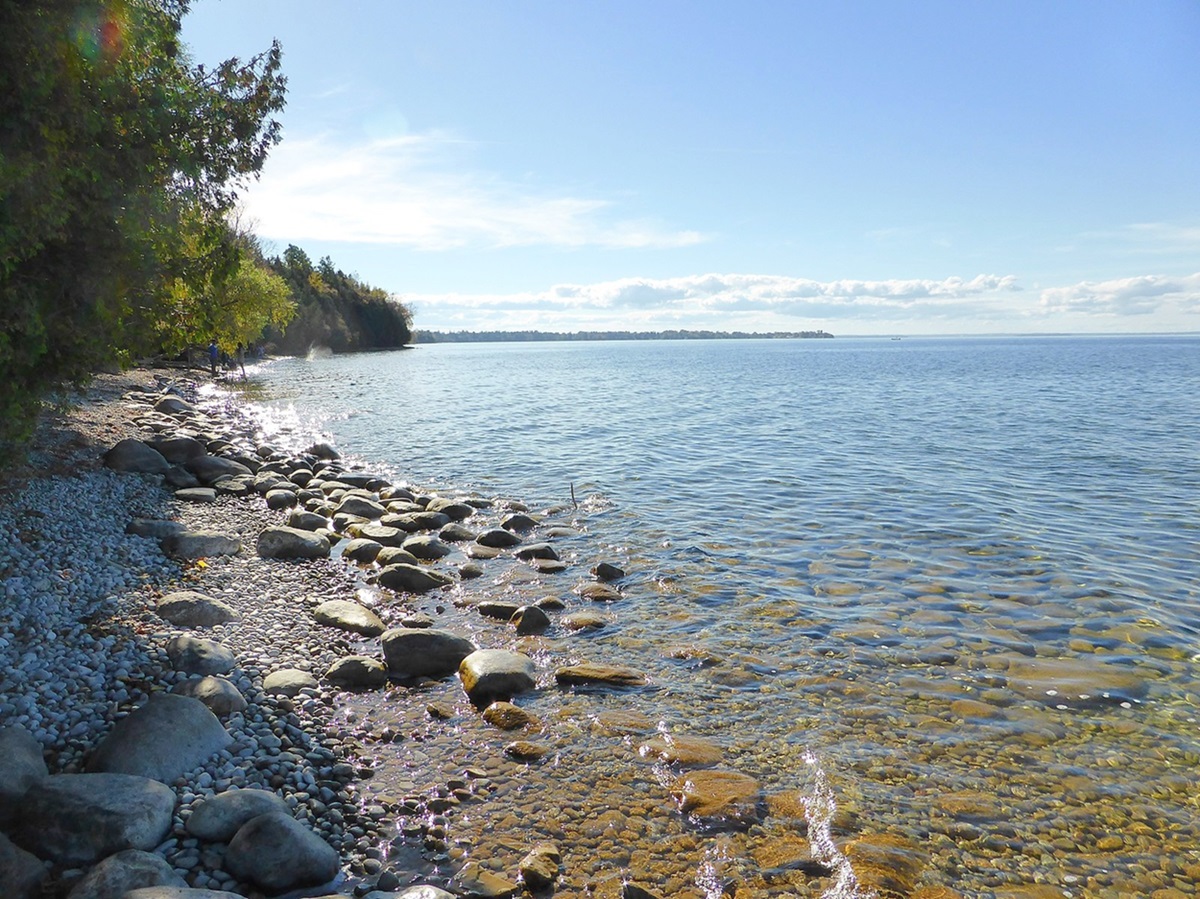Lake Manitoba, 4624 km2, elev 248 m, is one of 3 large lakes occupying the southern half of Manitoba. A narrow, irregular lake, about 200 km long with marshy shores, it is fed mainly from Lake WINNIPEGOSIS, which lies to the northwest, and drains northeast via the Dauphin River to Lake WINNIPEG. Delta Marsh at its southern end, which lies just 24 km north of PORTAGE LA PRAIRIE, is an important waterfowl research area. When Pierre LA VÉRENDRYE arrived in the mid-1730s, he found the area populated by Assiniboine. For many years it formed part of an important trade route along which furs were transported via Lake Winnipeg and the northern rivers to Hudson Bay. Subsequently a commercial fishery was established. Early French traders called it Lac des Prairies; the modern name probably refers to the Algonquian spirit MANITOU.
-
- MLA 8TH EDITION
- Francis, Daniel. "Lake Manitoba". The Canadian Encyclopedia, 20 March 2014, Historica Canada. development.thecanadianencyclopedia.ca/en/article/lake-manitoba. Accessed 19 February 2026.
- Copy
-
- APA 6TH EDITION
- Francis, D. (2014). Lake Manitoba. In The Canadian Encyclopedia. Retrieved from https://development.thecanadianencyclopedia.ca/en/article/lake-manitoba
- Copy
-
- CHICAGO 17TH EDITION
- Francis, Daniel. "Lake Manitoba." The Canadian Encyclopedia. Historica Canada. Article published February 07, 2006; Last Edited March 20, 2014.
- Copy
-
- TURABIAN 8TH EDITION
- The Canadian Encyclopedia, s.v. "Lake Manitoba," by Daniel Francis, Accessed February 19, 2026, https://development.thecanadianencyclopedia.ca/en/article/lake-manitoba
- Copy
Thank you for your submission
Our team will be reviewing your submission
and get back to you with any further questions.
Thanks for contributing to The Canadian Encyclopedia.
CloseArticle
Lake Manitoba
Article by Daniel Francis
Published Online February 7, 2006
Last Edited March 20, 2014

 Share on Facebook
Share on Facebook Share on X
Share on X Share by Email
Share by Email Share on Google Classroom
Share on Google Classroom



